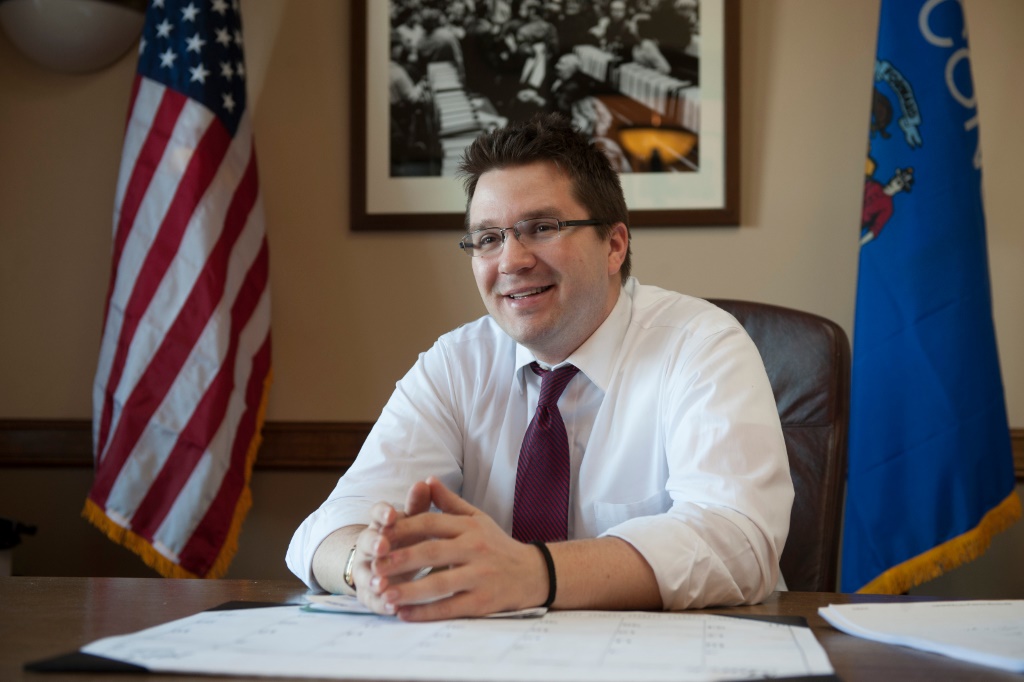Drunk Driving Law’s Annual Cost $20 Million?
Walker, Corrections won’t estimate cost of longer prison time for offenders.
A bill requiring fifth and sixth offense drunk drivers to serve at least 18 months in prison could cost state taxpayers up to $20 million per year, State Rep. Evan Goyke (D-Milwaukee) told an Assembly committee Thursday.
Fifth and sixth offense OWI offenders now face minimum prison sentences of six months.
Goyke, who emphasized he was not addressing the merits of toughening drunk driving laws, said he developed his cost estimate because the Department of Corrections failed to provide one. Fiscal estimates that estimate the cost of implementing legislation are developed by departments at the direction of the Department of Administration.
Goyke suggested the DOC estimate was omitted because the Walker administration did not want to make the costs of the measure public.
“That fiscal estimate would have a really, really big number attached to it,” he said, adding, “I also don’t think this committee should vote on a bill without knowing the cost.”
Some Republican committee members disputed Goyke’s estimate, saying many people sentenced for fifth and sixth drunk driving are sentenced to much longer than the minimum six months in prison, so that costs would not triple.
State Rep. Kathleen Bernier (R-Chippewa Falls), said that cost is a concern but “you can’t put a number on the lives.”
State Rep. Jim Ott (R-Mequon), the main sponsor of the legislation, said his intention was not to send more people to prison for 18 months, but wanted the tougher penalties to discourage people from drinking and driving.. “I want less people driving drunk,” he said.
Goyke also said the prison system simply does not have room to house the additional inmates. The Department of Corrections already is contracting with local jails for beds, he said.
DOC, in its budget request to Gov. Scott Walker, said it already is facing a bed shortage because of tougher drunk driving laws that took effect Jan. 1. Previously, most fourth offense drunk driving convictions were misdemeanors, and the law elevated them to felonies. It also tightened other penalties for repeat offenders.
DOC projected a need for 2,185 contract beds by 2018-2019, but Gov. Scott Walker proposed funding for just 977, according to the Legislative Fiscal Bureau. The Department of Administration, which houses Walker’s budget office, said it did not expect the DOC projections to be realized “based on prior trends in law changes and their effects on population,” the LFB said.
Gretchen Schuldt writes a blog for Wisconsin Justice Initiative, whose mission is “To improve the quality of justice in Wisconsin by educating the public about legal issues and encouraging civic engagement in and debate about the judicial system and its operation.”
Court Watch
-
No Unemployment Benefits For Worker Making Homophobic Remarks
 May 17th, 2022 by Gretchen Schuldt
May 17th, 2022 by Gretchen Schuldt
-
Appeals Court Upholds Injunction Against Abortion Protester
 Mar 13th, 2022 by Gretchen Schuldt
Mar 13th, 2022 by Gretchen Schuldt
-
80% of State’s Judicial Races Uncontested
 Feb 20th, 2022 by Gretchen Schuldt
Feb 20th, 2022 by Gretchen Schuldt






















We need these people off the road. Every time a multiple is arrested they most likely have no license or insurance so punishments for offenses 2 to 5 aren’t working. I propose we seize their cars and sell them. Nobody loans their car to someone irresponsible so if the title isn’t in the drivers name, too bad. Likewise if the spouse needs the car for work or whatever they know the offender shouldn’t be driving so they better turn them in if they use the car. Obviously they have a sickness so I don’t want to pay for punishing them but they need to off the road. No car, no additional drunk driving offenses. THAT might be a deterrent but at least they won’t be hitting me, my family, my loved ones or my neighbors. Get them off our roads.
Locking them up only delays the issues. By the 3rd, 4th and subsequent violation, these are mostly chronic users who in many cases are going to continue using once they are released despite their own best intentions. These are not evil people, but they have a serious affliction for which we do not yet have a cure. There is no one answer that fits all situations. But generally, what we need to focus on is keeping them from behind the wheel while impaired. In some rare cases where there is no cooperation, that will mean incarceration. For some, it means removing the license and ownership/access to motor vehicles – not just for a few years, but likely for a lifetime. That also means holding intentional enablers accountable. For some, helping them find alternative living situations where there are not dependent on driving can work. Those can decide on their own if they are going to continue using. For some it means long periods, maybe even a lifetime, of constant no cost monitoring if they do demonstrate a period of sobriety and compliance with the monitoring and are going to be allowed to drive. There are those who do demonstrate long periods of abstinence and active support work and those can be reviewed on a case by case basis. It will take personnel and equipment to effectively monitor and be a resource for these people and an effective program will not be cheap. Less than locking them up for a few years? I don’t know. There is a price we pay for this society that glorifies drinking. Some make a lot of money off the alcohol industry. I think the ones who make the money should be paying a good share of it.